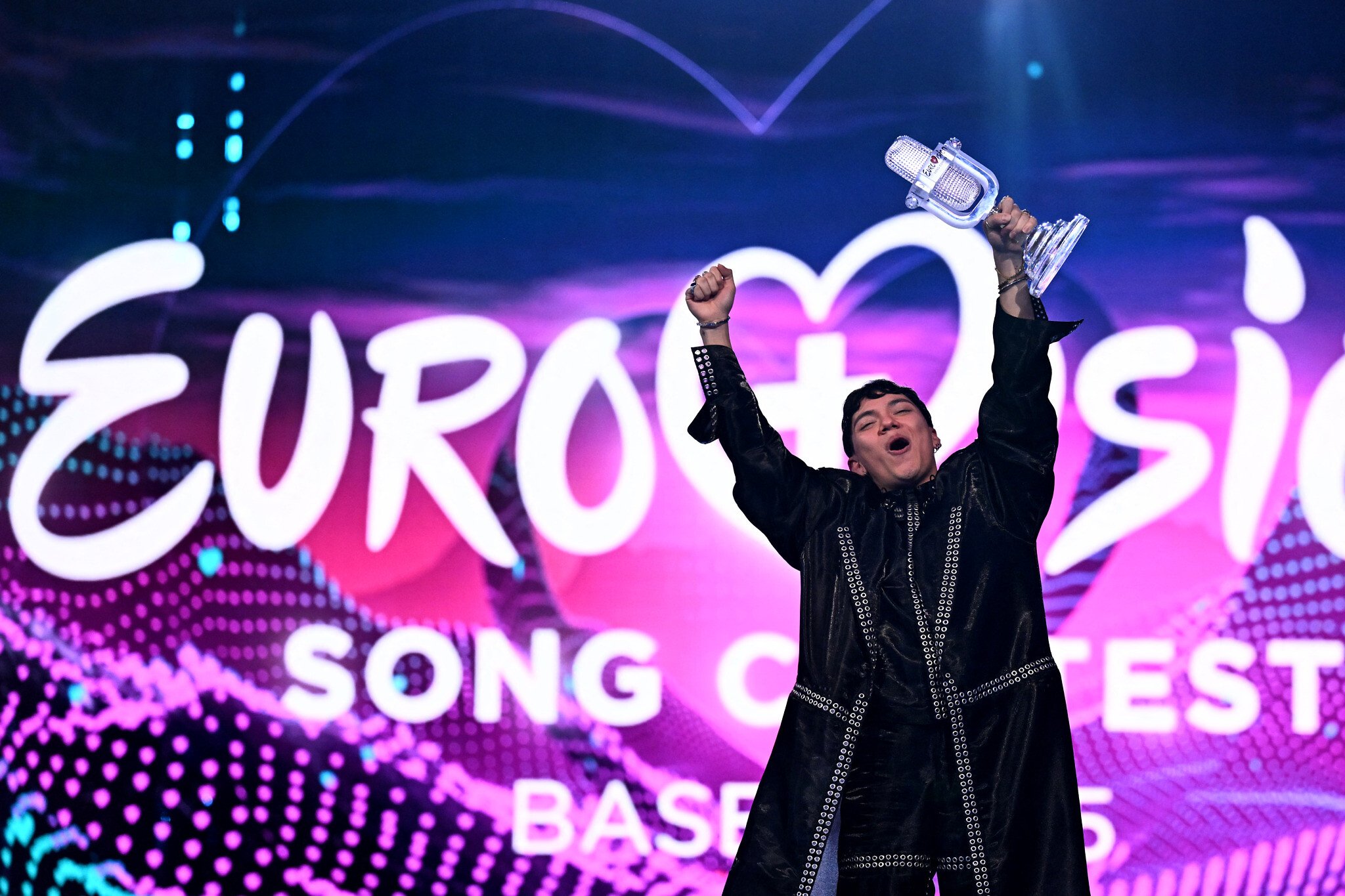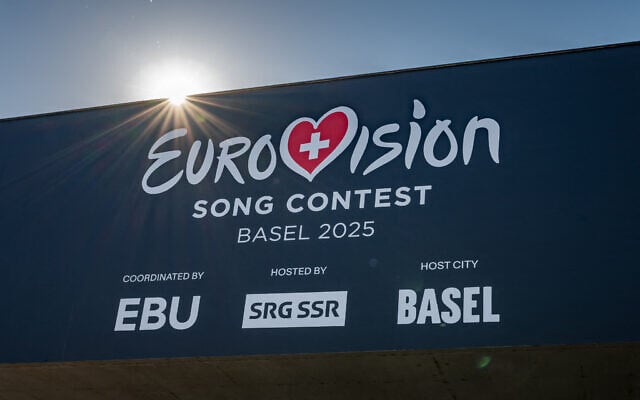



Eurovision 2025 winner Johannes Pietsch (JJ) of Austria said Wednesday night he hoped Israel would be barred from the competition next year, before partially retracting his statement.
In an interview with the Spanish newspaper El Pais, JJ said that “it is very disappointing to see Israel still participating in the contest. I would like the next Eurovision to be held in Vienna and without Israel.”
However, he added, “the ball is in the court” of the European Broadcasting Union, which organizes the competition. “We, the artists, can only express our views on the subject.”
JJ won this year’s competition in Basel, Switzerland, on Saturday night with his operatic ballad “Wasted Love.” He was the favorite of the jury, but only the fourth-most popular in the public vote, giving him enough points to take the overall win. Israel’s Yuval Raphael was the favorite among the public, ultimately finishing in second place overall in the contest.
Raphael, a survivor of Hamas’s October 7 massacre at the Nova music festival, was the subject of protests from those who sought to have Israel barred from the competition due to its ongoing war in Gaza. The EBU, which organizes the contest, rejected such calls both last year and this year.
Facing backlash from some in Austria, JJ issued a new statement through his music label on Thursday, saying he was “sorry if my words were misunderstood. While I criticize the Israeli government, I condemn any form of violence against civilians anywhere in the world — be it against Israelis or Palestinians. I will not comment further on this issue.”
Austrian broadcaster ORF, which will organize the country’s hosting of next year’s competition, issued its own statement on Thursday, saying that JJ’s “words reflect only his personal opinion and have nothing to do with us. For us, Eurovision is only a musical and artistic event.”
Oskar Deutsch, president of the Jewish Religious Community (IKG), the body that officially represents Austria’s Jews, criticized JJ’s comments.
“He is joining the chorus of Israel-haters, turning Israeli victims into aggressors and sowing division. This is disappointing but, above all, dangerous,” he said on X.
JJ also told the Spanish newspaper that he believes there must be “greater transparency” in the vote-counting system used at Eurovision, saying that “this year, everything happened in a very strange way.”
In the days following the annual competition, a number of countries’ public broadcasters lodged complaints over the voting system, calling into question Israel’s popularity in the public vote and demanding an investigation. Those complaining include Belgium, Iceland, Ireland, Finland and Spain, among the loudest critics of Israel politically.
The EBU dismissed any allegations of voter fraud, saying that the results were “checked and verified by a huge team of people to exclude any suspicious or irregular voting patterns” and then reviewed by “an independent compliance monitor.” This year, it said, there was a “valid vote” recorded in every country.
Some of the complaints centered on the ability of voters to cast up to 20 votes, something encouraged by the EBU for more than a decade, as well as on a broad Israeli ad campaign urging support for Raphael, something the EBU said does not break any rules and was not unique to Israel.
On Thursday, Israel’s Kan public broadcaster rejected the allegations of voting irregularities and said Raphael and her song were beloved by Europeans.
“We are very proud of the achievement of Yuval Raphael and the Israeli song, ‘New Day Will Rise,’ at the Eurovision in Switzerland,” said Kan in a statement, adding that “the Israeli delegation “followed all the rules of the competition and acted respectfully and collegiately to all the other delegations and artists.”
Kan added that “any hint to the contrary is irrelevant, non-collegial and above all does not align with the facts — the public in Europe loves Yuval and the Israeli song.”
Kan added that it “congratulates Austria with all its heart” for its win.
Several public broadcasters demanded before this year’s show that the EBU hold a debate over Israel’s participation in the competition. The broadcasting union said this week, following the contest, that it would “have a broad discussion with participating broadcasters, to reflect and obtain feedback on all aspects of this year’s event as part of our planning process for the 70th Eurovision Song Contest next year.”


